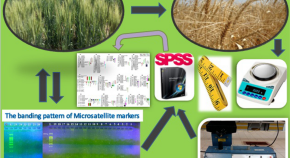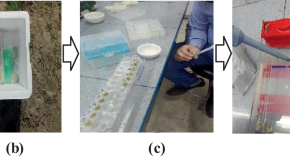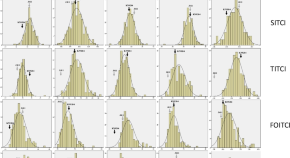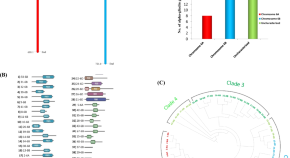Identification of Molecular Markers Associated with Genomic Regions Controlling Agronomic Traits in Bread Wheat Genotypes Under Different Moisture Conditions
Authors (first, second and last of 7)

Collection
The growing demand for food due to the increase in the world population requires special attention to focus our research on cereal crops such as hexaploid wheat. Wheat is the most widely grown crop worldwide. The global burden to produce nutritious food supply has inspired wheat researchers to explore and develop new traits in the elite cultivars. Hexaploid bread wheat has a very complex genome that has been sequenced recently. The in-depth studies of the wheat genome have provided a much-needed platform that will shed light on hotspots of regulatory pathways that control important traits. The genome information and generated new sequence resources led to the identification of many candidate genes for diverse traits including high grain yield, development biology, epigenetics changes, nutritional quality, tolerance to biotic and abiotic stresses.
This collection of articles aims to explore recent developments in wheat and other Triticeae genome research in three primary areas: the genome, the regulome, and functional genomics.
• Genome-related research includes studies which will provide insight into the genome structures and natural variations in wheat, as well as comparative genomics among Triticeae species.
• Regulome research includes studies which provide insight into the regulation of gene expression in wheat. This may encompass the epi-genome and comparative epi-genomics, small and non-coding RNAs, and the regulatory role of intergenic regions. It also includes studies exploring chromosome organization and structure, and sub-genome interactions.
• Functional genomic research includes studies which explore the functions of genes in wheat or other Triticeae species. They may identify and analyse genes involved in a variety of biological processes such as nutrient response, disease resistance, adaptation to abiotic and biotic stresses, and vernalisation.
Professor in Crop Genetics at Huazhong Agricultural University in Wuhan, China. His research interests include the genetic basis of wheat yield, crop improvement based on plant regulome, and the molecular basis of wheat polyploidy.
Scientist at the National Agri-Food Biotechnology Institute (NABI) in New Delhi, India. His current areas of research include metabolic engineering of phytic acid pathway for improving iron bioavailability in wheat, and the role of transporters involved in phosphate and iron homeostasis.









